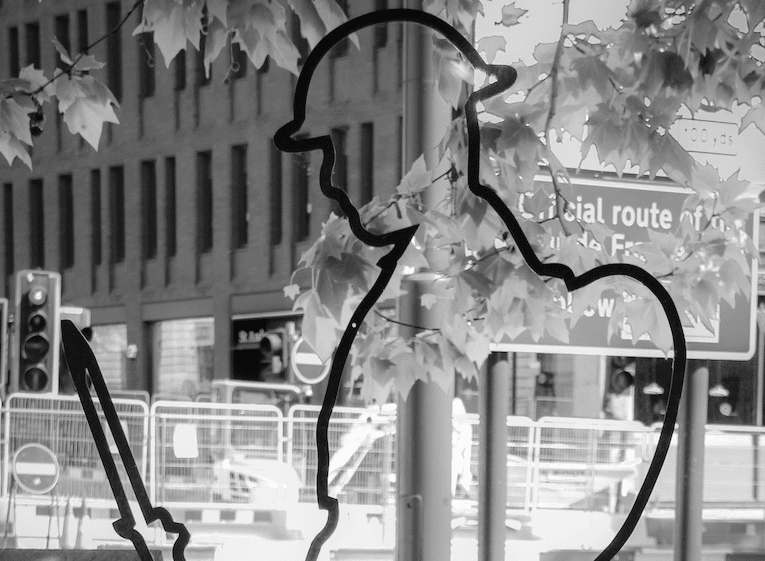Soldier to Civilian – a turbulent transition
Mental Health
Soldier to civilian is a journey that can be one of the toughest aspects of the military. Here former Commando Hamish Keene powerfully considers the key challenges...
Changing careers is rarely a straightforward process. Your transition starts with finding the courage to admit to yourself that you want to tread a different path and then you take the first of many steps down an unbeaten track that can feel designed to trip you up. The transition I’d like to talk to you about is directly related to the following paragraph:
“We were gen threaders with how gopping it was. It was turbo icers and the kit was absolute websters. We just had to grizz it out. Smudger had to get the wets on halfway through as lads were going down faster than a fat kid on a see-saw. Ginge broke like a wet nod! (still with me?). Last time we went the weather was essence and gen dit, forward assist three matelots managed to crack a naughty Dennis on the range right under the stripey’s nose.”
I’ll stop there. Roughly translated, it says, “We were a bit miffed by how bad the conditions were. Our kit was of low quality, but we just cracked on. Mr Smith made hot drinks to alleviate some of the cold. The day-walker in our group suffered the worst and on our last visit, the weather was glorious, and three members of the Royal Navy negligently fired live ammunition in full view of range control.”
If you’d heard anybody use the original version, you’d probably look at them like they’d just asked you what the square root of an ironing board was. However, if you’d served even a short time in uniform, you’d have understood immediately. We don’t have “military language” classes. It’s just one of those things you pick up by osmosis then use for the rest of your life. Our language is one of the bonding forces that draws members of the military so closely together. Others being the physical and mental hardships (see my previous article), the adventure of doing a job whose experiences money cannot buy and our unique sense of humour. It is for these reasons and more, that leaving the military life behind turns out to be one of the greatest challenges one can face. I’d like to try and highlight a few of these now.
Much like men’s mental health, the landscape for service leavers has improved immeasurably in the last few years. Nevertheless, the transition remains turbulent. Being part of the military fosters a sense of belonging that you must accept will never be replicated. By way of a personal example, I struggled badly at both school and university with my sense of self-worth, confidence, belonging and myriad other absent character traits. They were in me all along, but it took going through Royal Marines training to bring them out. Thus, almost my entire positive self-outlook became tied to my Commando status. When I left, it felt like this was stripped away in a heartbeat. My identity had gone. I know this to be a common problem and one that requires an awful lot of work to move past.
After identity loss comes purpose. When you choose to sign your life away on the dotted line it’s because you feel driven by a higher purpose. One beyond making money and living an ordinary life. There are many ways to do this, but when you’ve previously written a blank cheque to the nation you don’t readily accept alternatives as your way of life. I briefly worked in finance, and it quickly became apparent that it did not align with who I am as a person nor my values. Your place in the world becomes opaque as you search for meaning again and I know a lot of former service personnel end up in jobs purely because they were available and were taken at the expense of ones that offer them concordance. Finding a path that stirs the soul in a similar way is one almighty quest.
The loss of structure is another hurdle. In the military, your day is planned from morning to evening (at least, that’s what the “bright ideas club” say). Even if some of those days are the exact opposite of being in the winner’s enclosure, you at least have structure. When you join the real world, you are suddenly presented with the bizarre notion of liberty. I don’t think people realise just how good they have it. The sheer quantity of time you end up having to do whatever you want leaves you feeling like the fish at the end of Finding Nemo: “now what?”. It’s liberating for sure, but you also end up going stir-crazy because life has slowed to a comparatively funereal pace. This isn’t helped by the ongoing protest your body wages in retaliation to years of physical abuse. Establishing a routine to satiate your character’s needs can feel Sisyphean.
Culture shock comes next. This is dominated by being around “civvies”. You are forced to interact with those who would never have made the cut in basic training let alone active service. The kind of arrogant, entitled, self-absorbed narcissists that make one question whether you’re of the same species. I could go on about them forever, but I’ll just say I’m delighted that the vast majority I have met are wonderful people whom I have a lot of time for. I write this as though the military is immune to having bell-ends…but they chose to be in the Military Police.
Last, but by no means least, we have women. Please adjust gender/sex/pronouns accordingly here but, this is one area that experiences perhaps the most grief. For those in established relationships, you end up spending an awful lot more time with your partner than before. This takes immeasurable patience and understanding from both you and your partner as you both adapt to your new reality.
For the singles, it can be a minefield wrapped in a hurricane whilst being kicked down a flight of stairs. As you adjust to your new world, you are bombarded with all the above issues. When you throw complex emotions into the equation the wheels can come off in quite spectacular fashion and things go sideways. Rapidly. Suffice to say, it requires an empathetic, compassionate and (very!) patient lady to understand what’s going on in our heads and hearts. The common misconception of military men is of us being cold, heartless, bastards that see women as disposable pleasures. This is utter drivel. We feel things just as profoundly as any other man. We just might not be as adept at showing it.
I could hold forth about what it’s like when you’re trying to write the post-military chapter of your life. I hope this redacted version offers clarity as to the struggles faced by former service personnel. We are a resilient breed, but the journey should never be taken alone. As ever, if anyone reading this is going through any of the above, please reach out.
Yours aye,
Hammy
Hamish is currently fundraising for his excellent new app, Civvy Street, which aims to help soldiers adjust to civilian life.
Trending

Join The Book of Man
Sign up to our daily newsletters to join the frontline of the revolution in masculinity.



















